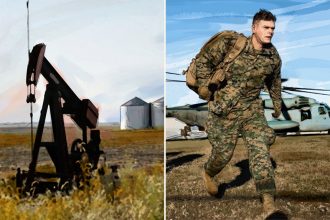
Science
Advances in knowledge about climate change and the effects of warming on our world and way of life.


Devastating Flooding at U.S. Air Base Amplifies Concerns About Climate Risks to the Military
By David Hasemyer

Not Trusting FEMA’s Flood Maps, More Storm-Ravaged Cities Set Tougher Rules
By James Bruggers

Iconic Forests Reaching Climate Tipping Points in American West, Study Finds
By Phil McKenna

Avalanches Menace Colorado as Climate Change Raises the Risk
By Bob Berwyn

Increasing Rainfall Is Triggering More Melting on the Greenland Ice Sheet — in Winter, Too
By Bob Berwyn

Climate Change Is Already Cutting Into the Global Fish Catch, and It's on Pace to Get Worse
By Phil McKenna

Coastal Flooding Is Erasing Billions in Property Value as Sea Level Rises. That's Bad News for Cities.
By Nicholas Kusnetz

Global Shipping Inches Forward on Heavy Fuel Oil Ban in Arctic
By Phil McKenna

Arctic Bogs Hold Another Global Warming Risk That Could Spiral Out of Control
By Phil McKenna

Fossil Fuels (Not Wildfires) Biggest Source of a Key Arctic Climate Pollutant, Study Finds
By Bob Berwyn

Cost of Doing Nothing: Nuisance Flooding Adds Up for Annapolis’ Historic City Dock
By Nicholas Kusnetz

As Congress Launches Month of Climate Hearings, GOP Bashes Green New Deal
By John H. Cushman Jr., Nicholas Kusnetz

Hurricane Michael Cost This Military Base About $5 Billion. It's Just One of 2018's Disasters.
By Phil McKenna

5 Science Teams Racing Climate Change as the Ecosystems They Study Disappear
By Bob Berwyn

Himalayan Glaciers on Pace for Catastrophic Meltdown, Report Warns
By KUNDA DIXIT, NEPALI TIMES

Power Companies vs. the Polar Vortex: How Did the Grid Hold Up?
By Dan Gearino

